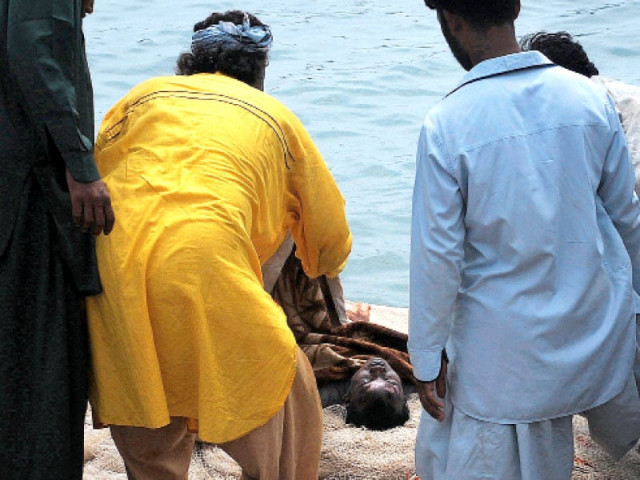Distraught fishing families clinging on to faint hope
Of 81 Pakistanis currently in Indian jails, 56 are fishermen from Sindh's coastal areas

Pakistani fishermen, many of whom inadvertently strayed into Indian territorial waters, have been languishing in India jails, causing mental distress to their families. Of the 81 Pakistani prisoners currently held in Indian jails, 56 are fishermen from the coastal areas of Sindh. They haven't been released despite completing their jail terms.
Among them are five fishermen from Mirpur Sakro and nearby villages. Ikhtiar Ali, Zahir, Sufiyan, Fakir Muhammad Jokhio, and Azizullah Khaskheli left their homes for fishing on Nov 16, 2023 but ended up in Indian jails along with 11 others. Since then, Indian officials have offered no clarity on their release.
Many of these fishermen were the sole breadwinners, and their incarceration has left their families struggling to survive. In some cases, women and children have been forced to beg in Karachi and other parts of Sindh.
The emotional toll on these families is unfathomable. Ikhtiar's mother has been wandering barefoot through the village streets in desperate hope for her son's return. Similarly, Jokhio's elderly father has lost his eyesight due to constant crying. His daughter silently prays for her father's return.
Jokhio's wife had to take her children to Gaddap in Karachi, while his elderly mother waits at home, praying for her son's return. Sufiyan's widowed sister has also been forced to leave, taking her disabled brother with her in search of sustenance, as Sufiyan's unfinished house risks collapsing at any moment.
Similarly, many families in Thatta and Badin districts have suffered the pain of having their loved ones imprisoned in India for years. The fishing industry, which once served as a source of livelihood for these coastal communities, has now become a system of bonded labour.
According to local social worker Ismail Jokhio, these fishermen are paid a small portion of the profits, often as little as 1% to 1.5% after deducting expenses like food and fuel. As a result, many fishermen are forced to beg or borrow money from wealthy lenders to make ends meet, landing them in traps of debt and lifelong exploitation.
Altaf Hussain Jokhio, the focal person for the Sindh Provincial Human Rights Commission, has been in touch with the arrested fishermen's families, using social media to push for their release. Syeda Yasmine Ali Shah, Senior Vice Chairperson of the Pakistan Fisherfolk Forum, said that the arrest of a Pakistani fisherman is like a catastrophe for their families, often leaving them without any financial support.
The failure of the Fisheries Cooperative Society to assist these families aggravates the situation. Shah and other rights campaigners are calling for the Pakistani government to include the families of imprisoned fishermen in social welfare programmes, such as the Benazir Income Support Programme.
Shah also stressed the importance of both Pakistan and India adhering to Article 73 of the United Nations Convention on the Law of the Sea. It states that accidental crossers of maritime boundaries should not face arrest, trial, or imprisonment.
Both Pakistan and India have agreed to a Consular Access Agreement, which allows the exchange of prisoner lists twice a year. On January 1, Pakistan shared a list of 266 Indian prisoners, including 49 civilians and 217 fishermen, while India shared a list of 462 Pakistani prisoners, including 381 civilians and 81 fishermen. Islamabad has urged New Delhi to release 108 Pakistani prisoners, who have completed their sentences.
The distraught families of Mirpur Sakro and surrounding villages continue to cling on to hope their loved ones will return. "If my son returns, I will never allow any of my children to go fishing again," says Ikhtiar's father.



















COMMENTS
Comments are moderated and generally will be posted if they are on-topic and not abusive.
For more information, please see our Comments FAQ